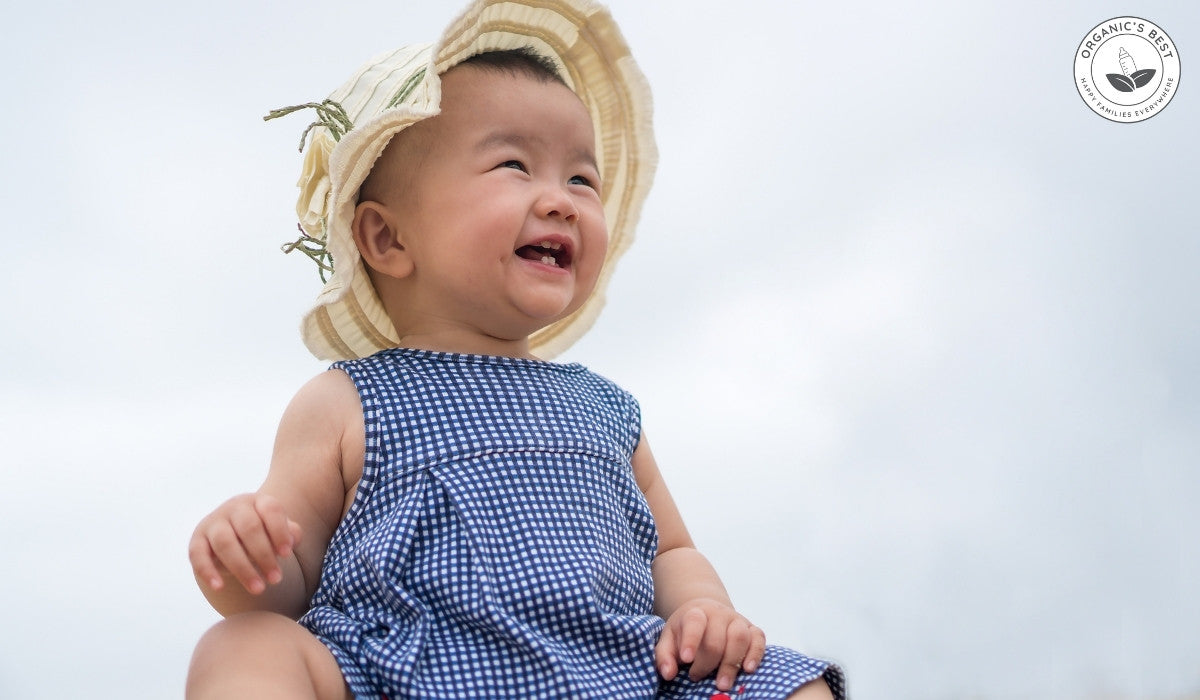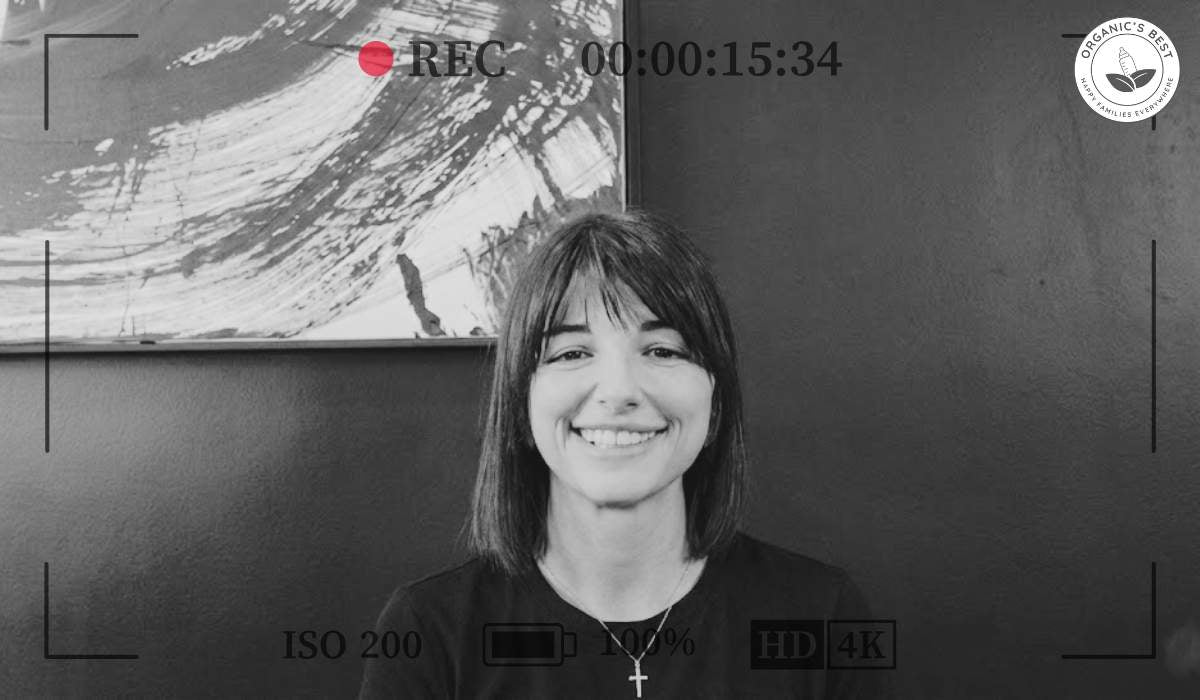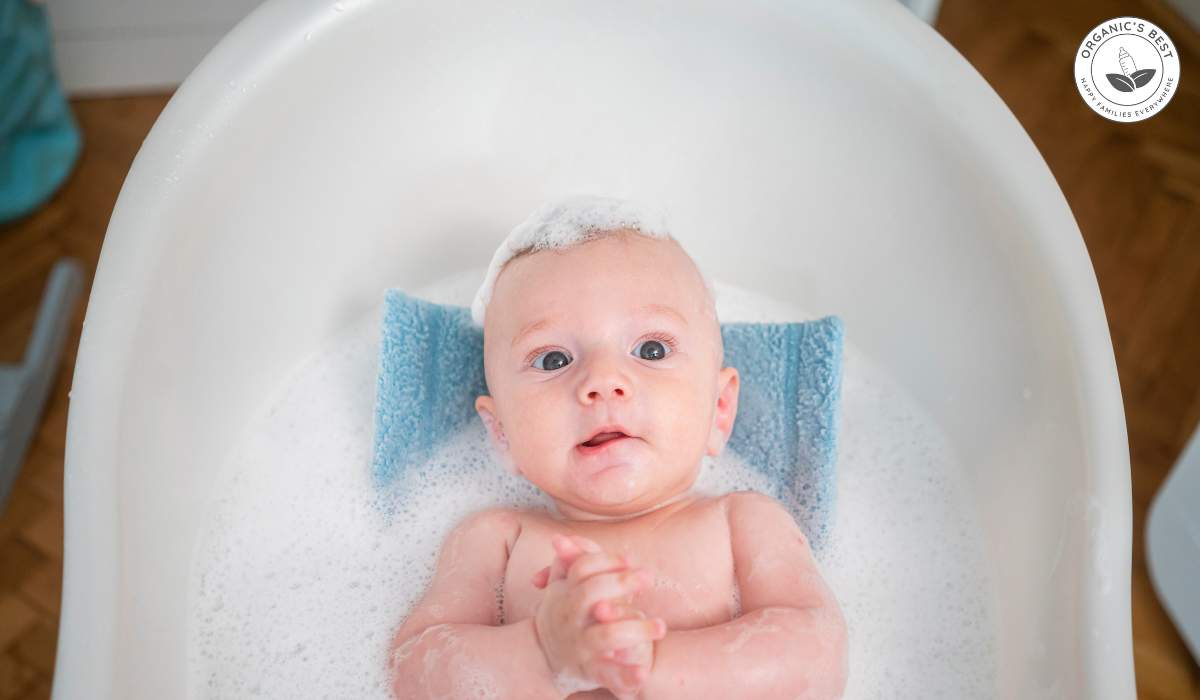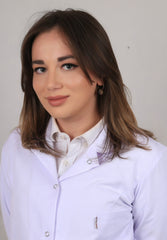Click to Get 2 FREE Boxes/Cans
Only New Customers! Click HERE to Get 2 Extra Boxes/Cans for Free With Your First Order.
BABY FORMULA
Offering new parents top-quality European infant formula from renowned brands like HiPP, Holle, Kendamil, and more. If you’re uncertain about which product to choose, our Formula Finder can help you make the best decision for your baby.
Baby Food
Offering new parents a premium selection of European baby foods, including jars, pouches, cereals, and snacks from esteemed brands like HiPP and Holle.
How to Keep Baby Cool in Summer: Essential Tips for Parents
by Agustina Fernandez July 08, 2025 6 min read

Sunny days are perfect for park dates, pool dips, and soaking up the warm weather, but when you've got a baby in tow, a little extra prep goes a long way. That doesn't mean staying cooped up inside, it just means being smart about sun safety.
In this guide, we'll walk you through how to keep your baby cool in the summer, the scoop on baby sunscreen, and other helpful tips to optimize baby sun protection during the sunny summer season.
Table of Contents
How Does Hot Weather Affect Babies?
While babies are tiny and mighty, their growing bodies are extra delicate. What feels like a breezy summer day to you can feel overwhelming to them.

This is because babies are still developing the ability to regulate their body temperature, which makes them much more sensitive to both hot and cold. On top of that, their skin is thinner and more fragile than ours, meaning it can burn more easily and lose moisture more quickly.
Add in the fact that they have a limited ability to regulate body temperature through sweating, and it is easy to see how hot weather can become a serious challenge for little ones.
This challenge extends beyond just keeping them comfortable; it's about protecting your baby from overheating, dehydration, sun damage, and health risks, like heatstroke. While it is rare, research shows that thermal stress can increase the risk of Sudden Infant Death Syndrome (SIDS), so it is important to take temperature control seriously.
It's becoming more important than ever to protect little ones during warm weather, with heatwaves increasing in frequency, as highlighted in a study published in The Journal of Climate Change and Health. According to the study, the average number of heatwaves across 50 US cities has risen from two per year in 1961 to six per year in 2021. Moreover, the research highlights that children are particularly susceptible to extreme heat due to their physiology and ongoing development.
How to Tell if Baby is Too Hot: Signs of Overheating in Babies
While hot babies can't exactly say that they need a dip in the pool to cool down, their bodies will speak for them through their behaviour and physical cues.
During the summer months, keep an eye out for:

-
Flushed cheeks or red skin
-
Skin that feels hot (not just warm) to the touch
-
Irritability or unusual fussiness
-
Lethargy or being overly sleepy
-
Damp hair or noticeable sweating
-
Rapid breathing or heartbeat
-
Heat rash
-
Fewer wet diapers than usual (a possible sign of dehydration)
Health Risks of Baby Overheating
Overheating can lead to a range of heat-related illnesses, from mild heat rash to more serious conditions like heat exhaustion or heatstroke.
Irritability, restlessness, or unusually flushed skin can all be early warnings. So, pay attention to your baby’s overall warmth and behavior, and if they seem too warm, use a lukewarm bath or a cool, damp cloth to help bring it down gently.
Dehydration is another major concern in hot weather. Babies can't tell you when they're thirsty, so offer extra feeds or breast milk or formula, and keep an eye on how many wet diapers they're having. If you're noticing fewer than usual, it could be a sign they need more fluids.
The bottom line is that if your baby seems off, grumpy, groggy, or just not like themselves in the heat, it's worth treating it as a red flag. Keeping them cool, hydrated, and out of direct heat is key to staying safe.
How To Keep Your Baby and Baby's Room Cool
Now that we know the signs of overheating, let's discuss how to avoid getting there in the first place by keeping your baby cool and comfortable.

Keep Your Baby Hydrated and Well-Nourished in Hot Weather
In the heat, babies need extra fluids to stay cool and healthy. If you're breastfeeding, offer feeds more often. Formula-fed babies may also need extra bottles.
For babies under six months, a little cooled, boiled water may help, especially if they are showing signs of dehydration, but always check with your doctor first because the general guideline is that babies should only consume breast milk or formula for their first six months. However, older babies can sip on plain water and enjoy yummy, hydrating foods like watermelon or cucumber.
Dress Your Baby in Lightweight, Breathable Clothing
When it's hot out, knowing how to dress baby in summer-appropriate clothing can make a huge difference. It is best to stick to loose-fitting, lightweight outfits made from breathable fabrics like cotton or bamboo to help air circulate and keep your little one cool.
Additionally, when choosing their summer baby clothes for the day, take a moment to consider the colour of the outfit. Light-coloured clothing reflects the sun, while dark or heavy fabrics can trap heat and raise the risk of overheating.
Avoid Peak Sun To Protect Your Baby from Heat Exposure
When it comes to hot weather, timing should also be considered. The midday sun (roughly 11 a.m. to 3 p.m.) is at its strongest, and it's best to keep your baby indoors or in deep shade during those hours.
Plan your walks, errands, or playtime for the early morning or later evening when things are cooler and gentler on your baby's skin.
Use a Baby Stroller Sunshade to Prevent Overheating
Your baby's stroller can heat up fast, so it is worth adding a proper stroller sunshade to your list of summer baby essentials. While it may seem convenient to grab a blanket and drape it over the top, this is not ideal, as it can trap heat. Instead, look for a sunshade that allows airflow while keeping your baby out of direct sunlight.
You can also tuck a cool, damp washcloth in the stroller to help keep them comfortable on the go. And don't forget to check in regularly to make sure they're not getting too warm.
Protect Your Baby with a Sun Hat and Baby-Safe Sunscreen
When you're heading outside with your baby, shade will be your best friend. As an extra step, you can even use a wide-brimmed hat to shield your little one's face. Not only is this functional, but it is also adorable!
For babies older than six months, add an extra layer of protection by using baby-safe sunscreen on any exposed skin.
Create a Cool Sleeping Environment: Keep Curtains Closed in the Daylight
Summer naps don't have to be sweaty. You can help your baby sleep soundly by keeping their room cool and calm, by closing curtains or blinds during the day to block out sunlight and stop the room from heating up.
Use a Baby Room Thermometer to Ensure Safe Sleeping Temperature
It's hard to tell how warm a room really is just by feeling it, so a baby room thermometer is a handy little helper, as it lets you keep tabs on the temperature and adjust as needed.
Conclusion on Keeping Baby Cool in Summer
Remember, keeping your baby cool and comfortable during the summer doesn't have to be complicated; it's all about being prepared. By following these easy tips for sun safety and staying ahead of the heat, you can help ensure your baby stays protected all season long!
Answering Your Questions
Here are some of the most asked questions that parents have about how to keep their little ones cool in the summer months.
Can We Give Water to 3 Month Baby in Summer?
Generally, babies under 6 months only require breast milk or infant formula, even in hot weather. If your doctor recommends giving them water to prevent dehydration, make sure to offer it in very small amounts and ensure the water has been boiled and cooled.
What Room Temp is Too Hot for a Baby?
The ideal temperature for the baby room in summer is 68-72°F (20-22°C), so anything above that may be considered too hot for your little one.
What Temperature is Safe to Take Baby Outside for a Walk?
Babies can enjoy walks in most temperatures, but it's safest to head out before or after the midday sun to avoid the hottest part of the day. During heatwaves or high humidity, it's best to keep walks indoors or in the shade to keep your little one comfortable and safe.
When Can Babies Start Wearing Sunscreen?
The American Academy of Pediatrics recommends keeping babies under 6 months old out of direct sunlight and not using sunscreen. For babies over 6 months, sunscreen can be safely applied to exposed skin.
Do Babies Need Socks in Summer?
During summer, socks aren't usually necessary for babies unless they're in a cooler space, like an air-conditioned room. On warm days, it's best to let them enjoy being barefoot or wear light, airy socks to stay comfortable.
|
Disclaimer: Please be aware that this information is based on general trends in babies, and it is not medical advice. Your doctor should be your first source of information and advice when considering any changes to your child’s formula and when choosing your child’s formula. Always consult your pediatrician before making any decisions about your child’s diet or if you notice any changes in your child. Breastfeeding is the best nutrition for your baby because breast milk provides your child with all the essential nutrients they need for growth and development. Please consult your pediatrician if your child requires supplemental feeding. |
Agustina Fernandez
Dr. Agustina Fernandez earned her medical degree from the prestigious Universidad Nacional de Córdoba, Argentina. With a deep-rooted passion for pediatrics, Dr. Fernandez is currently on the path to specializing in children's healthcare. Recently, she has delved into the vital field of infant nutrition. Her research interests include breastfeeding, infant formula, and baby food in little ones’ formative years. Dr. Fernandez's commitment to this area of study underscores her dedication to ensuring the health and well-being of children from their earliest days.
Leave a comment
Comments will be approved before showing up.
Also in Organic Infant Nutrition and Health Blog

Infant Feeding Guide for New Dads: Bottle Feeding Tips
by Agustina Fernandez February 10, 2026 10 min read
Read More
Spilled Milk: Feeding Unfiltered with Hayley
by Agustina Fernandez February 04, 2026 4 min read
Read More
Baby Bath Guide: How to Bathe a Newborn
by Agustina Fernandez February 03, 2026 8 min read
Read More
Reviewed by Dr. Bardha Qerimi, MD
-

Dr. Bardha Qerimi: Medical Reviewer of Organic's Best Blog
Dr. Bardha Qerimi completed her medical studies at the University of Prishtina in Kosovo, where she began her journey into the field of medicine. She has since developed a career in medical research, contributing to projects with notable organizations, including the World Health Organization (WHO).
